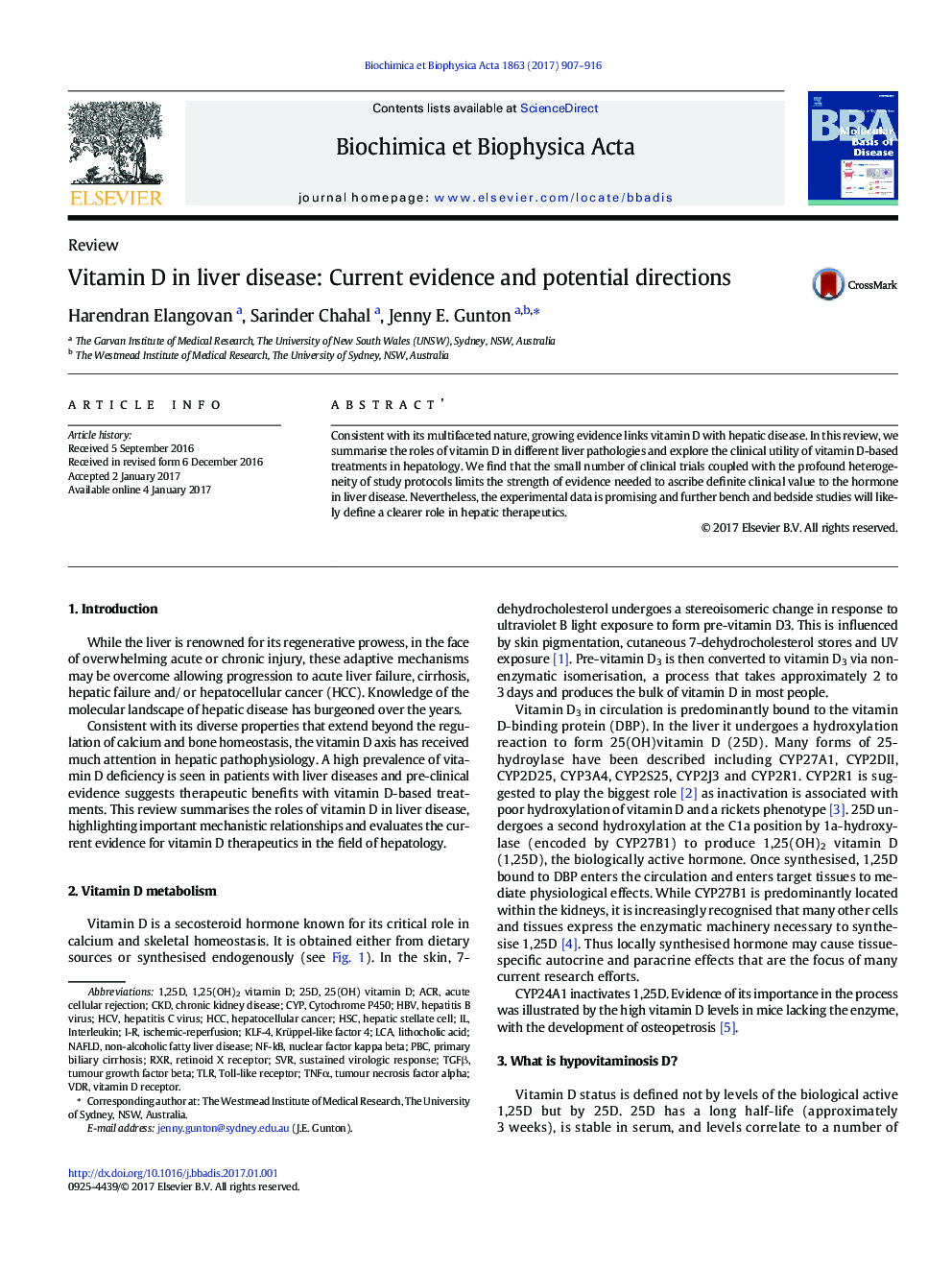| Article ID | Journal | Published Year | Pages | File Type |
|---|---|---|---|---|
| 5500963 | Biochimica et Biophysica Acta (BBA) - Molecular Basis of Disease | 2017 | 10 Pages |
Abstract
Consistent with its multifaceted nature, growing evidence links vitamin D with hepatic disease. In this review, we summarise the roles of vitamin D in different liver pathologies and explore the clinical utility of vitamin D-based treatments in hepatology. We find that the small number of clinical trials coupled with the profound heterogeneity of study protocols limits the strength of evidence needed to ascribe definite clinical value to the hormone in liver disease. Nevertheless, the experimental data is promising and further bench and bedside studies will likely define a clearer role in hepatic therapeutics.
Keywords
HSCNAFLD1,25(OH)2 vitamin D25(OH) vitamin Dklf-4I-R1,25DRXRVDRPBCRetinoid X receptorTLRACRTNFαSVRNF-kBCyPTGFβHCCLCALithocholic acidischemic-reperfusioninterleukinchronic kidney diseasenon-alcoholic fatty liver diseasetumour necrosis factor alphaToll-like receptorAcute cellular rejectionhepatocellular cancerHepatic stellate cellCytochrome P450Primary biliary cirrhosisKrüppel-like factor 4nuclear factor kappa betaCKDHBVHCVHepatitis C virushepatitis B virusSustained virologic responseVitamin D receptor
Related Topics
Life Sciences
Biochemistry, Genetics and Molecular Biology
Ageing
Authors
Harendran Elangovan, Sarinder Chahal, Jenny E. Gunton,
